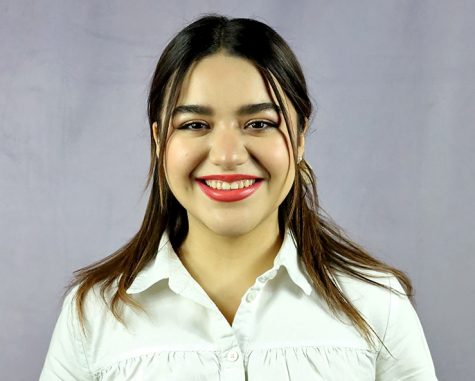It was March 14, a Saturday night in El Paso, when Alejandra Sanchez returned from what she had hoped would be a semester abroad experience in Spain after it was interrupted by the COVID-19 pandemic.
The UTEP senior majoring in finance was enrolled in four different business–related courses at the Autonomous University of Barcelona (UAB) under the American Institute for Foreign Study (AIFS), a study abroad third-party provider.
During the two months Sanchez spent in Spain, she was able to forge strong bonds with foreign students and develop a deep interest in the courses she was taking.
“Barcelona is a city where there is so much to do, every day was different,” Sanchez said. “At no point did I imagine something like this would happen.”
As news and concerns about COVID-19, or coronavirus, spread as quickly as the disease itself, UAB and AIFS maintained Sanchez and her peers informed about the precautions they should take during their time abroad, something Sanchez says kept her relatively calm.
“They would send us emails almost every day about how to take care of ourselves, what emergency line to dial if we showed symptoms and they would also accompany us to the doctor if we needed it,” Sanchez said.
However, on March 3, as the coronavirus continued to spread across Europe, UTEP contacted Sanchez to give her two options: return to the U.S. or stay in Spain. Not wanting to lose the experience she had been planning since she arrived at UTEP, Sanchez made the decision to stay.
“I told them I wanted to stay because I honestly didn’t want to miss the opportunity to continue studying abroad,” Sanchez explained. “However, the next day, after Spain became a level 3 country, they canceled the program and began looking to return all American students to the U.S. who were studying anywhere in Spain.”
It was then that UTEP began booking flights for all students located in Spain or France. In the span of only 48 hours, UTEP had booked Sanchez a flight and sent her an itinerary to immediately return to El Paso.
“I felt very disappointed,” Sanchez said. “I had already planned a lot of trips, made various friends and had only spent time for half of the program. I was truly sad, but I understood that I had to return.”
On her way back to the U.S., before arriving to Dallas, Texas, where she would then board a flight to El Paso, Sanchez and the rest of the passengers were required to complete a questionnaire that asked them to list if they had traveled to countries such as China, South Korea or Italy and to notify whether they presented any symptoms related to the coronavirus. At the time, Sanchez listed she was experiencing a flu and dry cough.
Sanchez says there were approximately 10 people directing passengers and collecting each questionnaire once the plane landed in Dallas. After collecting the questionnaire, the passengers were directed to meet with the Centers for Disease Control and Prevention (CDC), where Sanchez had to wait two hours in line due to the large number of people arriving from abroad who were also waiting to get treated.
Once it was her turn, Sanchez was escorted to a room where a doctor took her temperature six times. The doctor then informed her that she did not have coronavirus, just a mild flu, but was still advised to remain in isolation for 14 days. Sanchez says she believes she was not required to test for the virus, as she did not present a fever.
“I was not worried because I did not feel sick and I was not exposed to crowded places in the last week,” Sanchez said.
Since her arrival in El Paso, Sanchez has remained in constant contact with UTEP. She says she is not allowed to visit campus and the university has advised her to follow proper guidelines as a form of precaution, such as monitoring her temperature twice a day for 14 days, avoiding contact with other people and constantly washing her hands.
UTEP has reported four out of the 35 positive COVID-19 cases in El Paso to be affiliated with the university. One of them being a female student who returned from overseas travel and tested positive for the virus on March 14. According to UTEP, the student did not visit campus and has practiced self-quarantine while university officials remain in contact with her.
Sanchez continues to follow the recommended guidelines and is still under self-quarantine. She says she has tried to stay busy within the comfort of her home by exercising, dancing, watching movies, listening to music and cooking vegan recipes she comes across online.
Sanchez’ study abroad program is also not entirely lost. UAB is offering the courses online and, due to the program being canceled because of Spain’s Level 3 emergency status, AIFS will be providing reimbursement to students.
As for Sanchez, she hopes to return to Spain in the future to pursue a master’s in business.
“Studying in another country is an incredible opportunity that everyone should experience,” Sanchez said. “Although I was only there for half of the duration of the program, it was worth it.”
On Tuesday, March 24, El Paso Mayor Dee Margo implemented an executive “Stay Home, Work Safe” order for the City of El Paso that went into effect that same day at 11:59 p.m. as a way to combat the spread of the coronavirus. The order applies to everyone in El Paso County with the exception of essential businesses and activities.
As of now, it is unknown how long the order will last.
Anahy Diaz may be reached at [email protected]








